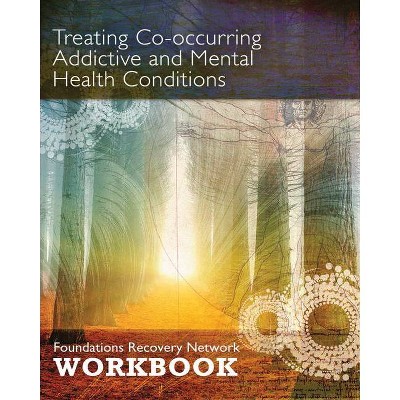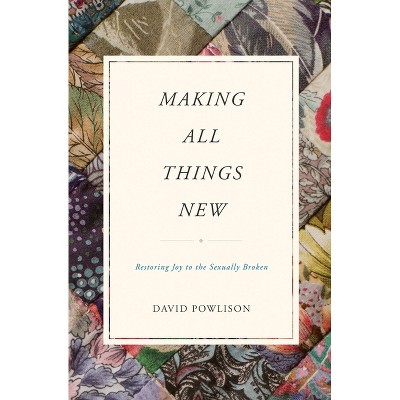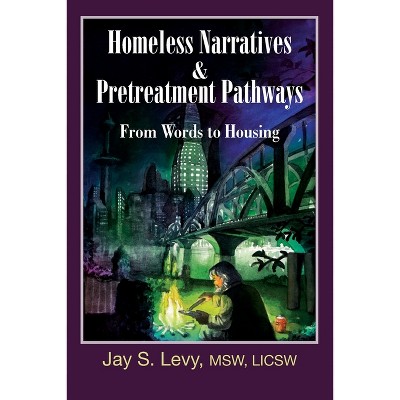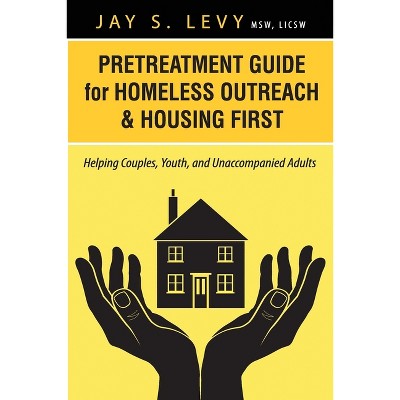Sponsored

Pretreatment Across Multiple Fields of Practice - by Jay S Levy & Louise Levy (Paperback)
In Stock
Sponsored
About this item
Highlights
- Pretreatment Across Multiple Fields of Practice: Trauma Informed Approach to Homelessness and BeyondJay and Louise Levy and their co-authors have distilled years of diverse experience serving people with complex psychological and physical needs into a much-needed roadmap for providers.
- Author(s): Jay S Levy & Louise Levy
- 224 Pages
- Social Science, Poverty & Homelessness
Description
About the Book
Outlines working principles that will guide practitioners in the art of building authentic and effective partnerships with people experiencing homelessness and other traumas, while minimizing re-traumatization and creating psychological safety
Book Synopsis
Pretreatment Across Multiple Fields of Practice: Trauma Informed Approach to Homelessness and Beyond
Jay and Louise Levy and their co-authors have distilled years of diverse experience serving people with complex psychological and physical needs into a much-needed roadmap for providers. This book clearly outlines working principles that will guide practitioners in the art of building authentic and effective working partnerships with people experiencing homelessness and other traumas, while minimizing re-traumatization and creating psychological safety. Carefully chosen case studies beautifully illustrate how these principles can be put into practice in a variety of settings--from street outreach to shelters to special education classrooms--and are attentive to the impact of racism and other forms of oppression. --Kiko Malin, MPH, MSW, Public Health Director, Amherst, Massachusetts
As a representative of the Street Medicine Institute, and more importantly the global street medicine movement, Jay's work is a beacon not just to light the path we are on, but to guide us towards a better place. --Jim Withers, MD, Medical Director and Founder of Mercy's Operation Safety Net and the Street Medicine Institute (Pittsburgh)
This new collection demonstrates that Pretreatment-thinking offers people working with all kinds of human services a powerful, practical framework for engagement, for change, and ultimately for healing. --Alex Bax, Chief Executive (London), Pathway - Homeless & Inclusion Health www.pathway.org.uk
As Levy, Connolly, and others argue in this important book, the concept of Pre-treatment Therapy is of major applicability way beyond the field of homelessness. Its ideas and concepts should be core reading for psychologists and psychiatrists, and indeed anybody hoping to work with people affected by chronic experiences of trauma in a psychologically informed way. --Dr Peter Cockersell, DPsych, Psychoanalytic Psychotherapist, Psychologically Informed Environments Consultant, Chief Executive of Community Housing and Therapy
Learn more at www.JaySLevy.com
Review Quotes
"I found it clever how Levy used Pretreatment values of collaboration and inclusive relationships throughout the book, utilising people's relevant experiences and strengths to promote wellbeing. Each contrib-uting author shows their passion for the work, giving specific examples and providing the reader with feelings of validation, not shying away from honesty and transparency around their views, particularly around the NHS 'medical model.' So many times, I said 'yes!' out loud in agreement whilst reading." -- Emma Marsh, Clinical Team Manager, LYPFT Rough Sleepers Mental Health Service, Chair of the nationwide Setting up Services Forum for Homelessness
"Pre-treatment Therapy is as important a concept in working with people who have experienced so-called 'complex trauma, ' or people with the characteristics associated with diagnoses of personality disorders, as mentalisation has become; indeed, it provides the basic groundwork of mentalisation in working with people with complex emotional needs. This book is therefore essential reading for anyone trying to work with, or commission services for, people who have experienced multiple or compound trauma. As Levy, Connolly, and others argue in this important book, the concept of Pre-treatment Therapy is of major applicability way beyond the field of homelessness: its ideas and concepts should be core reading for psychologists and psychiatrists and indeed anybody hoping to work with people affected by chronic experiences of trauma in a psychologically informed way. It's often said that service providers should 'meet people where they are.' This book explains why and how to do that." -- Dr Peter Cockersell, DPsych, Psychoanalytic Psychotherapist, Consultant in Psychologically Informed Environments (PIE), Chief Executive of Community Housing and Therapy
"Jay's legacy as a leader, mentor, advocate, and practitioner has transformed thousands of lives for the better and I could not be happier to see his light continue to shine in the form of this wonderful collection of work." -- Keith Wales, MSW, LICSW, Vice President of Homeless Services, Eliot Community Human Services
"A Shintoist saying is, 'There are many mountains to God, and many paths up each mountain.' This book has chapters describing a variety of approaches that are all based on respect, compassion, decency, patience, and acceptance. Individually, each is powerful. Combined, as this book recommends, they have the potential to transform the world." -- Bob Rich, PhD, Healesville, Victoria, Australia, Author of From Depression to Contentment
"The authors of this book strongly advocate for moving away from medical and siloed models of care where an individual is expected to fit into a medicalized system with a focus on key performance indicators, tick boxes and repeated assessments, which only retraumatise individuals leaving further damage and disengagement. A Pretreatment approach focuses on principles that are person centred, holistic, and with a model that is strength-and-asset based with systems being solution focused and integrated. Through this psychosocial model of engagement, there is also a move away from discrimination, stigma, and blame to a model that is integrated and inclusive." -- Jane Cook, Queen's Nurse, Registered General Nurse, Health Visitor Complex Needs Manager, Groundswell
Shipping details
Return details
Frequently bought together


Trending Non-Fiction















